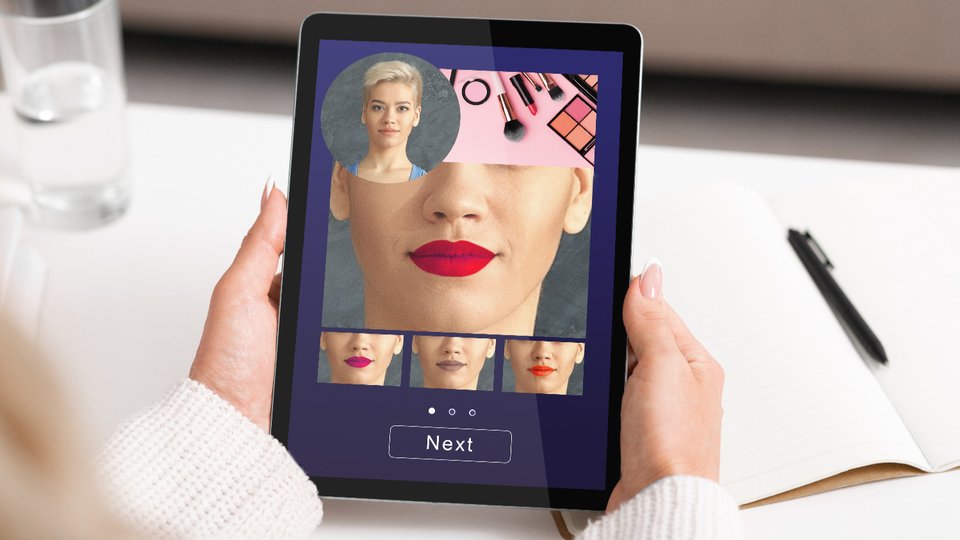Technology
The future of AI/AR in retail
There are several ways AI and AR will make a sizeable impact on the retail landscape.

May 25, 2023 | Jennifer Stevenson, VP, product marketing and strategy at Uberall
The pandemic impacted every facet of retail, from customer behavior to retail operations, making AI and AR an invaluable part of the "social distanced" customer experience. AI has been constantly evolving over the past few years, allowing brands to use it to unlock unique customer experiences.
Meanwhile, more and more brands have begun integrating AR features into their apps and online campaigns, allowing customers to try out AR technology and experience upgraded customer journeys.
AI services in the retail sector are predicted to increase to over $31 billion by 2028, while AR in retail is expected to grow to over $61 billion by 2031. With this in mind, there are plenty of opportunities for brands to take advantage of these technologies, especially since today's consumers want interactive experience more than ever.
Here are several ways AI and AR will make a sizeable impact on the retail landscape:
Metaverse
The metaverse has become a huge buzzword in not just the retail space, but across many industries. It's still early, but it looks like the metaverse could dramatically change how retail brands interact with their customers. With the success of branded metaverse experiences like Nike in Roblox and Balenciaga in Fortnite, we're now seeing an acceleration of retailers dipping their toes into the metaverse and trying to figure out their place in it.
The brands that are succeeding today are creating new retail experiences that are extremely integrated into the metaverse environment in which they live, but also smartly pairing virtual and physical goods. In the coming years, we anticipate the metaverse will dramatically change how brands deliver experiences to their customers, further blending our physical and virtual worlds for a more convenient and immersive way to shop.
Conversational AI
One of the top ways brands can use AI to deliver seamless experiences and respond to customer feedback in real time. Customers are 87% more likely to go to a competitor after a service experience that requires a lot of effort, while 66% of customers say AI makes their lives easier. When the tools are there for AI to facilitate human-like interactions with customers, brands should take advantage of them. AI eliminates the need for consumers to repeat themselves, delivers full-service experience at scale, and makes service available anywhere, from any device.
By 2025, 95% of all customer interactions are predicted to be powered by AI, and it will be because of the convenience and effortlessness such services provide.
ChatGPT
In a similar vein, ChatGPT has been all the rage recently, and there are many ways for the AI-based conversation tool to be used in the retail sector. ChatGPT can write things such as high-quality product descriptions optimized for search, personalized email campaigns, engaging social media posts, and much more.
Retailers have found ChatGPT can be used to provide personalized shopping recommendations, answer questions about products and even help with the purchasing process if used properly. And those that do find the most creative ways to implement it will see the greatest success.
Customized suggestions
Another way AI can eliminate face-to-face interactions is by offering tailored product suggestions based on a customer's browsing history, something humans can't do that easily or quickly. For example, sports apparel brand Adidas leverages AI to generate recommended outfits when customers browse an individual product, and has found the number of items included in outfits has increased by 960% since implementing the solution.
As AI continues to evolve, so will these personalized customer experiences that have been proven to increase value to the company. They will continue to evolve rapidly in the coming years and beyond, further changing the standards in digital marketing.
Futurizing the shopping experience
If the aftermath of the pandemic taught us anything, it's that convenience shopping is here to stay, whether that's starting online and ending up in store, or remaking the in-store experience online. Brands know there is nothing more important than customer satisfaction and creating the perfect customer experience. So there are no better tools to deliver that now and in the future than AI and AR.
Success with customers and the competition will be determined by the actual benefits brought by these tools and the creativity with which they are implemented. So brands that manage to give customers the most creative and convenient shopping experience will be the ones seeing the best results. And with the way AI and AR are continuing to evolve by the day, the sky's the limit for what retailers can do.





